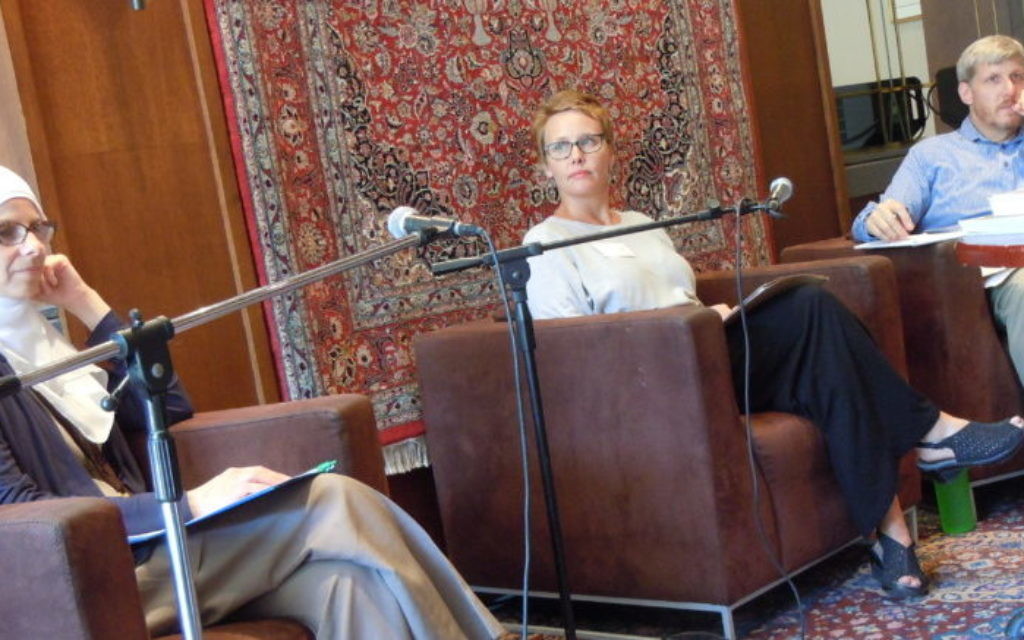Perfect Environment for Israel Wasted

Louisiana and Israel were conspicuously absent from the interfaith discussion on environmental stewardship Sunday, Aug. 21, at Ahavath Achim Synagogue.
One of the surprising omissions was a good thing. The other was disappointing.
The discussion on some of the ways people are destroying G-d’s creation touched on the effects of global warming. The Rev. Kate McGregor Mosley, the executive director of Georgia Interfaith Power & Light, said we have knocked the world out of balance, creating the erratic weather patterns that produce more droughts and more floods.
Get The AJT Newsletter by email and never miss our top stories Free Sign Up
While she spoke, 20 parishes in southern Louisiana were still assessing the damage as the floodwaters receded from the most devastating natural disaster to hit the United States since Superstorm Sandy. As The New York Times had rushed to tell its readers at the peak of the disaster, when tens of thousands of homes were underwater, rainfall totaling up to 31 inches in days and the resultant flooding looked “a lot like climate change.”
To the credit of Mosley, fellow panelists Hounada Sinno of the Islamic Speakers Bureau and Rabbi Laurence Rosenthal of Ahavath Achim Synagogue, and the crowd of 50 or so people, no one at the Aug. 21 meeting followed the Times’ lead and used Louisiana as Exhibit A of climate change.
It’s reasonable, although unprovable, to conclude that the Louisiana flooding is an effect of global warming. But it’s offensively inappropriate to use a disaster as a debating point while it’s ongoing. There’s plenty of time to argue about the reasons and about the actions needed to make a repeat less likely, but now is the time to focus on assisting those who are suffering.
You can help by donating through such organizations as the Jewish Federations of North America (www.jewishfederations.org) and B’nai B’rith (www.bnaibrith.org) or by volunteering with a group such as Nechama (nechama.org).
My relief that Louisiana was left out, however, gave way to frustration with the realization that Israel had not been mentioned even once during the two-hour event.
Israel doesn’t have to be a part of every interfaith conversation, of course, but its exclusion in this case seemed an intentional effort to avoid anything divisive while seeking common ground among Judaism, Christianity and Islam.
The crowd likely included advocates of the boycott, divestment and sanctions movement against Israel. Mosley’s Presbyterian denomination, for example, has flirted with BDS for more than a decade.
All the more reason that Israel needed to be a part of the discussion.
When Mosley talked about global deforestation, she or Rabbi Rosenthal or one of us in the audience should have mentioned that one country in the world has more trees now than a century ago: Israel (thanks to Jewish National Fund and despite forest fires sparked by Hezbollah rockets).
When Rabbi Rosenthal mentioned that a long-term Middle East drought has been cited as a cause of the Arab Spring uprisings of 2011 or when Sinno complained about wasted resources in our disposable society and the lack of drinking water in Beirut, it would have been appropriate to mention that Israel has largely defeated the regional drought through desalination, water-saving technologies such as drip irrigation, and the recycling of three-quarters of its waste water.
Israel has shared those innovations from China to Africa to California and could offer them to its Arab neighbors if they only recognized the Jewish state in their midst.
But the interfaith crowd at AA didn’t hear about the environmental benefits that could be lost by isolating and ostracizing Israel. That means the event was a lost opportunity.




comments